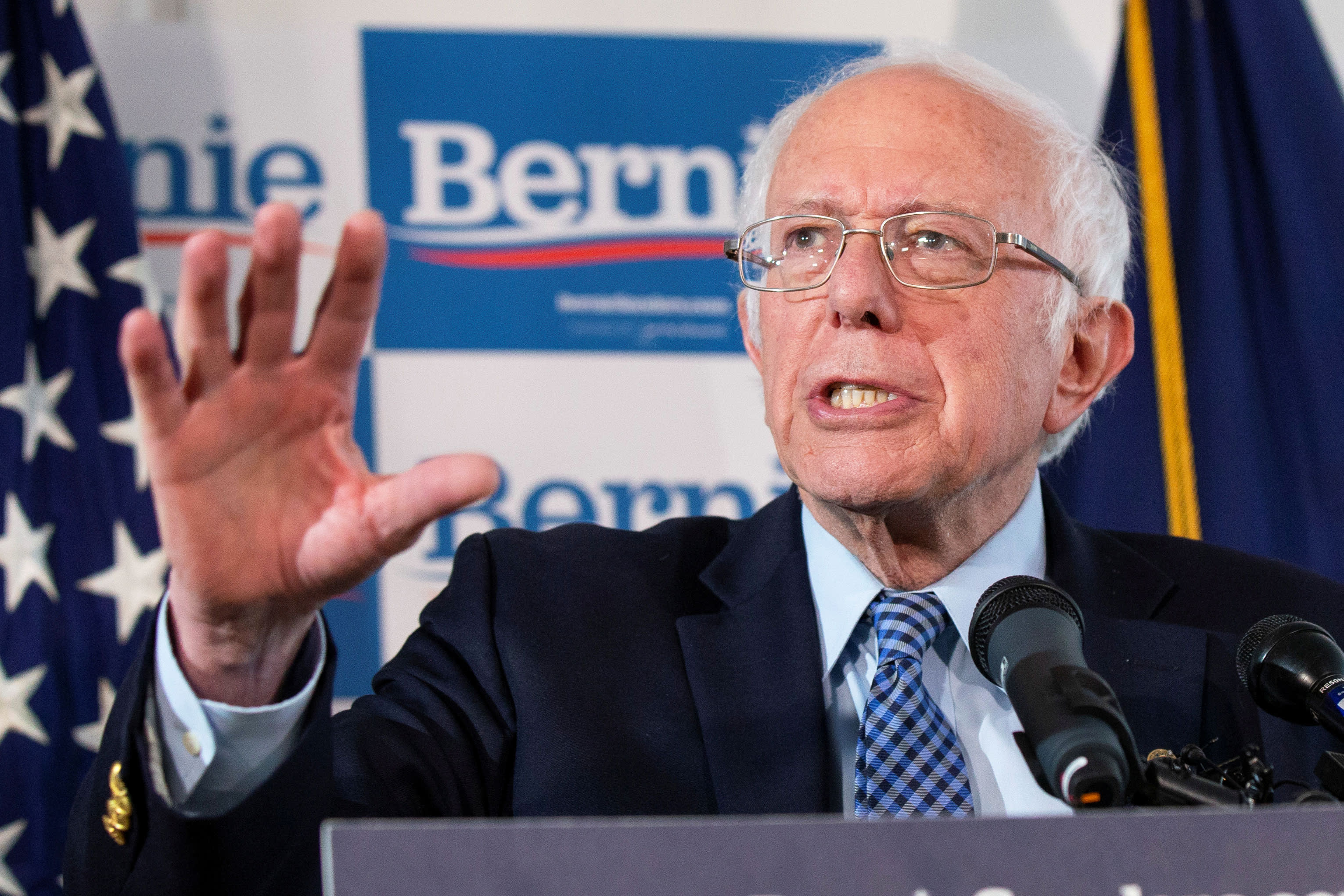Senator Bernie Sanders speaks at a press conference at his campaign office in Burlington, Vermont, March 4, 2020.
Caitlin Ochs | Reuters
Sen. Bernie Sanders called Tuesday for a monthly $2,000 payment to every U.S. household for the duration of the coronavirus crisis.
During a speech on how to respond to the destruction caused by the global pandemic, Sanders said he guessed the federal government would have to spend roughly $2 trillion "to prevent deaths, jobs losses and to avoid an economic catastrophe."
"We can do it. We can address this crisis. We can minimize the pain," the 2020 Democratic presidential candidate said during a livestream on a night when Florida, Illinois and Arizona hold primary elections.
Sanders did not mention the primaries or campaign strategy during the remarks.
The senator also called for unemployment insurance of up to 100% of a worker's prior salary with a cap of $75,000. He proposed a moratorium on evictions, foreclosures and utility shutoffs, and a waiver on all student loan payments as workers face job losses.
Sanders also called for Medicare to handle all costs for emergency coverage during the crisis. He pushed for the government to use emergency authority to spur increased production of supplies such as masks and ventilators.
He also called to impose conditions on corporations if they receive taxpayer aid, such as a ban on stock buybacks and executive bonuses.
Officials in Washington have scrambled to head off economic disaster as the restaurant, travel and entertainment industries take a drubbing from the outbreak. Many cities and states have shut down schools and regular activities to encourage residents to stay home and prevent the spread of the coronavirus disease.
Congress is working on a massive stimulus package that could cost more than $1 trillion, with more measures to combat the outbreak likely ahead. The Trump administration's stimulus proposal could include a one-time cash payment to all Americans, an idea that has gained traction among Republicans.
At least 5,984 cases have been reported in the U.S., and at least 100 people have died, according to data from Johns Hopkins University.


